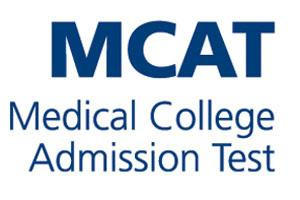Preparing for Medical School During Your Undergraduate Studies
Hey, Future Physicians!
This newsletter is about preparing yourself for medical school during your undergraduate studies. Some of these strategies and tips can be used in high school as well. Developing yourself and your resume can prove to be very beneficial in your medical school journey. Both medical school and your undergraduate studies can help you learn to navigate and excel in a new environment and make strides toward achieving your goals. Being in college can open many doors and create new opportunities for growth and learning, and many of them can be helpful in networking, college, medical school, and life in general. The journey to medical school builds on material that you have learned throughout your education, so it is important to study diligently and retain information well. This will also help you when you reach more advanced classes, areas of study, and topics of discussion.
Maintaining a high GPA/Studying Diligently: Although it can sometimes be difficult, it is important to try your best in all of your classes so that you can have the highest GPA possible. Being able to demonstrate academic success on your medical school application can convey to the application review committee that you are a proven student that is committed to academic excellence. Being able to do this often requires each individual to develop a study strategy that works best for them. While you are striving for good grades in your classes, it is also important that you retain the information that you are learning. Classes, such as biology, chemistry, and others, can provide a solid foundation of scientific topics that you will need to take with you to medical school. While at medical school, you will continue to build upon these topics you have already learned by possibly learning about them more in-depth and learning about how these topics relate to medicine. In addition to these classes, courses, such as oral communications, composition, and English, can greatly help you be able to communicate with your patients in the future. Many medical schools require a written essay component to their application process. It is important to craft your essay in a way that best represents who you are and why you are the optimal candidate to be selected for admission at that particular medical school. For some STEM or aspiring medical school students, these classes can feel unnecessary, but excelling in these classes can help you become a more well-rounded student. In addition, pursuing academic excellence can allow you to develop your time management skills, which will be important for navigating the rigor of medical school and even later as a professional.
Getting Involved: Most colleges and universities will offer a wide variety of clubs that help students learn more about topics and being a professional in their respective major. For aspiring medical school students, participating in these clubs can help you learn more about medical school, and some may offer resources for preparing for the MCAT. Joining these clubs can also help you network with doctors, medical professionals, professors, and other students who are wanting to attend medical school. This can potentially help you learn more about the medical field as well as opportunities, such as shadowing and internships. Pursuing leadership opportunities in organizations like these can be helpful in growing as a leader, which can be something notable to put on your resume. In addition, participating in other clubs that are not related to medicine can help you become well-rounded and find new hobbies and interests. Doing other things that are enjoyable for you can help you take a break from medicine when you may need it. Being involved in extracurricular activities can demonstrate that you can balance your academics with your other activities. Be active listeners and participants in your classes because these professors will likely be the ones who write letters of recommendation for you for your medical school application, which are important.
Finding Opportunities for Professional Development: Participating in things like internships, shadowing a medical professional, summer programs, and more can allow you to gain skills that can transfer to medical school and even into your medical career. Sometimes, these opportunities can allow you to have hands-on experience with learning medical topics as well as learning more in-depth about them. Your school and/or some professors and advisors may have some resources for you to help you find opportunities like these. In addition to the valuable knowledge that these opportunities can provide, they can also help you meet other people and give you the chance to network with them. For example, shadowing a doctor can possibly give you someone to ask questions about your medical journey, and they can give you advice. Doing research can help you gain a deeper understanding of medical topics and systems.
Studying for the MCAT: Alongside your other application materials, the Medical College Admission Test (MCAT) is a large part of your application to medical school. Once again, it is important to find a study strategy that works well for you. It will likely be beneficial to begin exposing yourself to MCAT study material early so that you can grow more familiar with it over time. There are many free resources, such as practice tests, as well as paid tutors that you can find. As previously mentioned, advisors and professors will likely be able to point you in the direction of some resources. Some clubs and organizations may even host MCAT study and preparation sessions.
Choosing the Right Medical School: There are many factors that go into choosing a medical school. Some include location, cost, quality of the program, class size, and more. When you decide what you want in some of those categories, it can help you narrow down your options and make your decision a little easier. When possible, take tours of these schools to be able to experience the campus and school environment as well as ask any questions about the program. Clubs and organizations can sometimes host information sessions with various medical schools. Early in the decision-making process, it may be beneficial to attend as many of these sessions as you can in order to best evaluate all of your options. Another major thing to be thinking about is scholarships since medical school can be extremely expensive. Professors and advisors will probably direct you to some resources that can help make paying for medical school a little easier. Enjoying your school environment and finding a place where you can thrive plays a major role in shaping your medical school experience and making it a place where you can best learn and develop.
About Future Physicians: Future Physicians is an organization that connects aspiring medical school students with opportunities for shadowing, internships, volunteering, and more. As mentioned above, participating in things like these can be an aid to you in your journey to medical school. Signing up for the Future Physicians newsletter below can help you learn more about medical school and the medical field as well as get connected with some of these opportunities. Also, feel free to share Future Physicians with a friend to help reach their goals, too. We appreciate it!
Keep learning and growing!
The Future Physicians Newsletter Team





